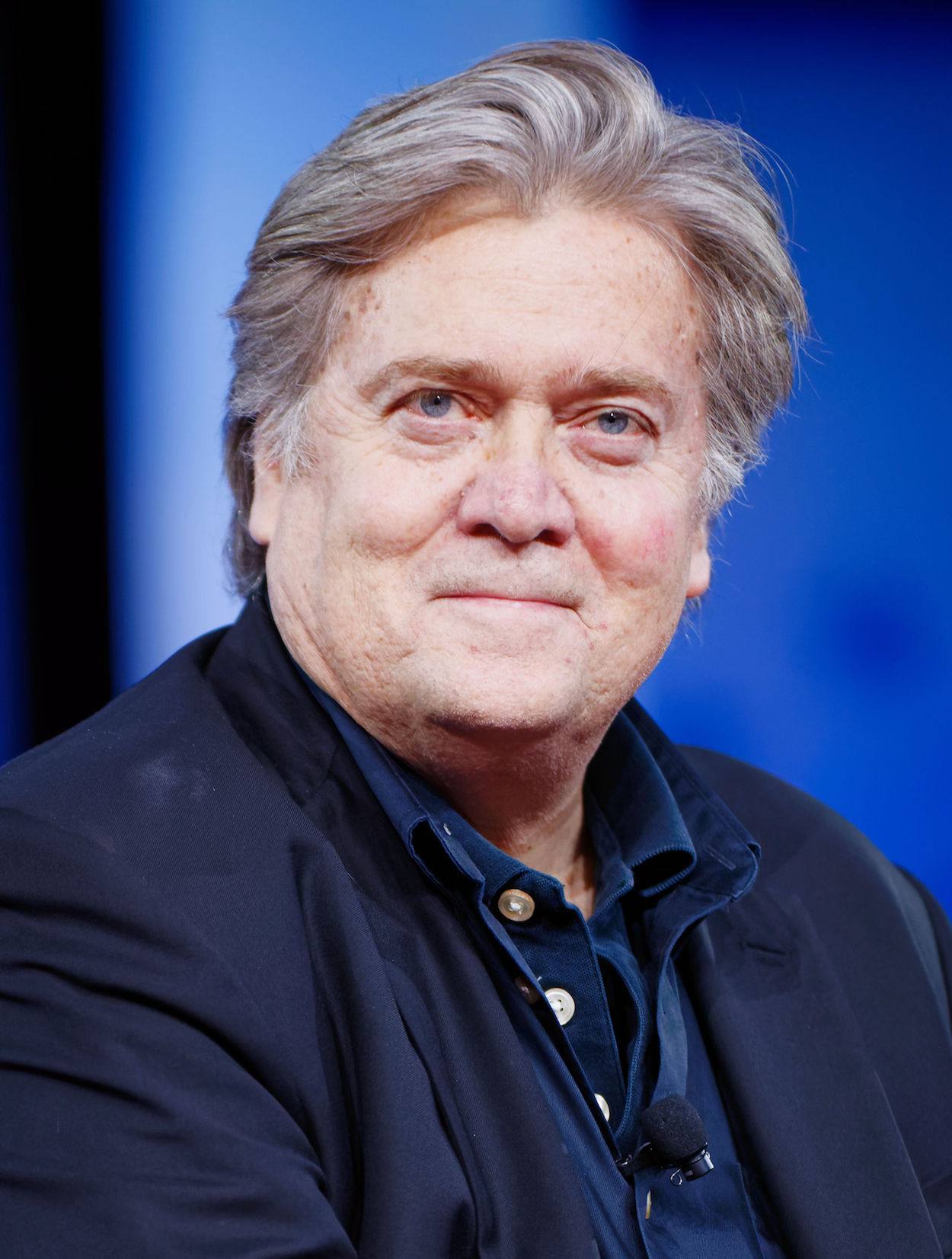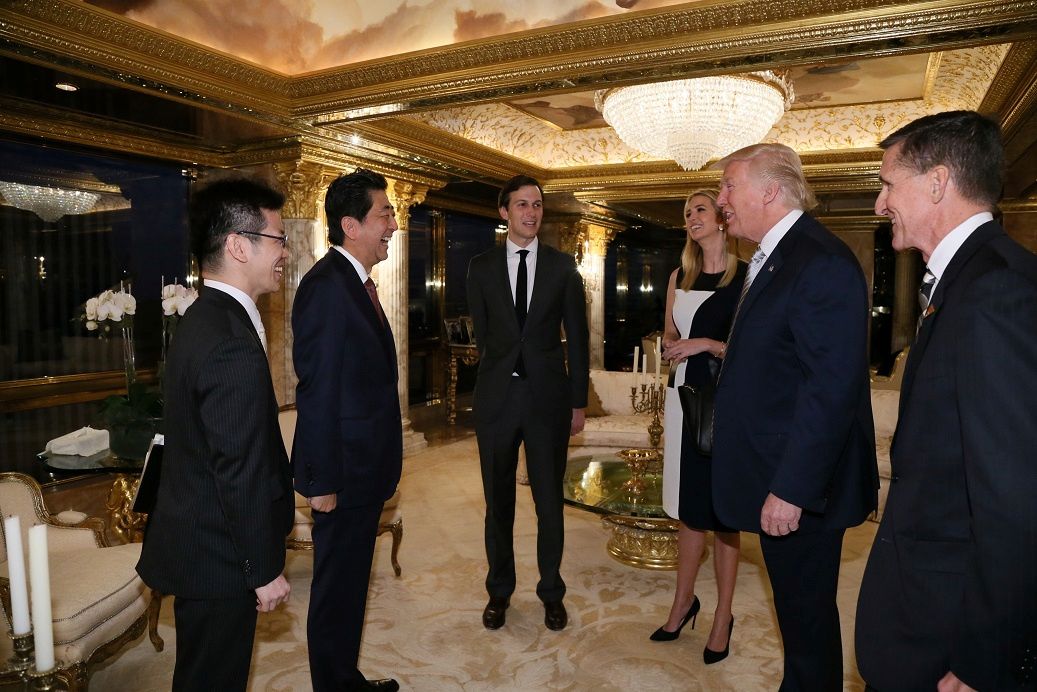by Brian Hioe
語言:
English
Photo Credit: White House
THE RECENT OUSTER of key Trump advisor Steve Bannon from the National Security Council has been seen by some of those who concern themselves with Taiwan as reassuring. This is seen as the self-correction mechanism of the American state successfully at work, in removing a figure who was destabilizing of the American government in his undue influence on President Trump. Nevertheless, we do well to keep in mind that Bannon’s ouster may not actually be so beneficial for Taiwan due to the fact that this does not occur at the hand of traditional Republican establishment, longtime “Friends of Taiwan” within the American government, or the political center. Rather, Bannon’s ouster came about because Bannon is losing ground in factional infighting within the Trump administration to other elements of the dangerous political forces which have arrayed themselves behind Trump.
As a leading figure of the so-called “Alt-Right”, Bannon is at the head of the new far-right political forces who have entered American politics along with Trump. Bannon being named to the National Security Council by Trump in an executive order was shocking for many, since the move was without precedent, and that executive order also removed the Director of National Intelligence and the Chairman of the Joint Chiefs of Staff from the National Security Council. According to some reports, in a sign of how powerful Bannon’s influence on Trump once was, Bannon himself drafted the order that named him to the National Security Council, and the order was signed into law without being read by Trump.
 Steve Bannon. Photo credit: Michael Vadon/CC
Steve Bannon. Photo credit: Michael Vadon/CC
Bannon was seen as possibly the guiding hand behind some of Trump’s alarmingly “protectionist” and “isolationist” views calling for American troop withdrawal from costly bases in South Korea and Japan, given the “Alt-Right” strongly pushes for American domestic issues to take precedent over foreign interventions. Nevertheless, in consideration of past statements asserting his view of war between the US and China over the South China Seas as an inevitability, Bannon could also be behind rhetoric calling by Trump for a stronger stance against China—including stepping up support for Taiwan. Figures part of or closely affiliated with the Trump administration such as Peter Navarro and John Bolton are seen as aligned with Bannon in the Trump administration, seeing as both are strong voices for America to take measures against China that call for stronger support of Taiwan and seem to have uncomfortably allied themselves with the “Alt-Right” because they share the view that China must be confronted by America. However, again, remembering that the “Alt-Right” strongly prioritizes American domestic issues over foreign interventions, as observed in the “Alt-Right” reactions to Trump’s recent actions in Syria, Bannon may also be supportive of the notion of using Taiwan as a bargaining chip to secure a more favorable economic deal for America in negotiations with China.
The removal of Bannon from the National Security Council comes with the reinstatement of the Director of National Intelligence and the Chairman of the Joint Chiefs of Staff to the National Security Council. However, it is crucial to note that Bannon’s removal does not seem to come because he has lost out to the traditional Republican establishment, which also calls for a stronger stance against China, but does not see the issue in as apocalyptic terms as Bannon. Rather, Bannon seems to have lost out to Trump’s son-in-law, Jared Kushner, within the factional jockeying within the Trump administration.
Due to the fact that Kushner seems to be behind Bannon’s ouster, Kushner has suddenly become seen in a rosy light by many commentators, with some pointing to the fact that Kushner is close with Democrats to suggest that Kushner is a figure who could steer the polarizing Trump administration back to the political center. Indeed, Kushner does seem to call for toning down some of the harsh rhetoric advocated by Bannon. Not long ago, Kushner was being criticized by the same commentators as someone only in the Trump administration because of his family ties to Trump, and someone who, like Bannon, has undue influence within the Trump administration.
 Jared Kushner. Photo credit: Lori Berkowitz/Flickr/CC
Jared Kushner. Photo credit: Lori Berkowitz/Flickr/CC
Nevertheless, for Taiwan and other Asia Pacific nations, Kushner proves another dangerous figure and this must be kept in mind. As a key advisor and a member of the Trump family as the husband of his daughter Ivanka, Trump seems to hold Kushner in high esteem. Likewise, Trump seems view Kushner as something of a “superman”, apparently taking the view that he can delegate tasks as broad as solving the Israel-Palestine conflict or handling US-China relations to Kushner and Kushner can take care of it on his own with little input.
However, what proves dangerous for Taiwan and other countries is that Kushner is unusually pro-China due to extensive business dealings with China in the past. Trump has taken to using his presidency to benefit his business empire, even holding meetings with world leaders as Chinese president Xi Jinping or Japanese prime minister Shinzo Abe in his resort at Mar-a-Lago as an apparent advertisement for his resort empire. Trump is a president for whom his private business affairs and the affairs of the American government are not separate matters. This is no different for Kushner. Kushner is widely perceived by many as continuing to act for his own business interests using his government position. For example, controversially, Kushner met with officials of the Anbang Insurance Company in mid-November as part of negotiations between his family’s company and Anbang, before he was later forced to withdraw due to concerns over conflict of interest. This has raised concerns as to whether this is part of a Chinese attempt to influence the policy of the Trump administration through Kushner.
 Kushner (center), along with Donald Trump and Ivanka Trump at a meeting with Japanese Prime Minister Shinzo Abe. Photo credit: Cabinet Public Relations Office
Kushner (center), along with Donald Trump and Ivanka Trump at a meeting with Japanese Prime Minister Shinzo Abe. Photo credit: Cabinet Public Relations Office
Kushner’s influence on Trump’s China policy in a perhaps dangerously pro-China direction is also apparent in that he was reportedly responsible for convincing Trump to reaffirm One China Policy after a period of time in which Trump suggested One China Policy may be negotiable. Some also view Rex Tillerson’s echoing Chinese diplomatic vocabulary after his meeting with Xi Jinping which preceded Trump’s recent meeting with Xi Jinping as also due to Kushner’s influence. As such, Kushner is perceived by some as providing a direct channel of access to the Trump administration by China in a manner which supersedes Rex Tillerson and the US State Department.
Dangers continue for Taiwan in regards to the Trump administration if the loss of power of Steve Bannon within the Trump administration merely means the replacement of one figure in the Trump administration which could be dangerous for Taiwan with another. Which is to say that, for Taiwan, the loss of power by Bannon to Kushner is replacing someone dangerously provocative of conflict with China with someone who may be dangerously pro-China. This is by no means the systems of checks and balances in the American government working correctly and so one should not use the claim that the American government is self-correcting for the aberrations of the Trump administration in order to reinforce blind faith in America under the Trump administration. Many difficulties continue to lie ahead for Taiwan in its dealings with the Trump administration. Taiwan must be attentive to internal developments within the Trump administration in order to navigate what may be proving to be uncharted waters in US-Taiwan relations rather than to complacently assume that the status quo will simply hold as a matter of course.

